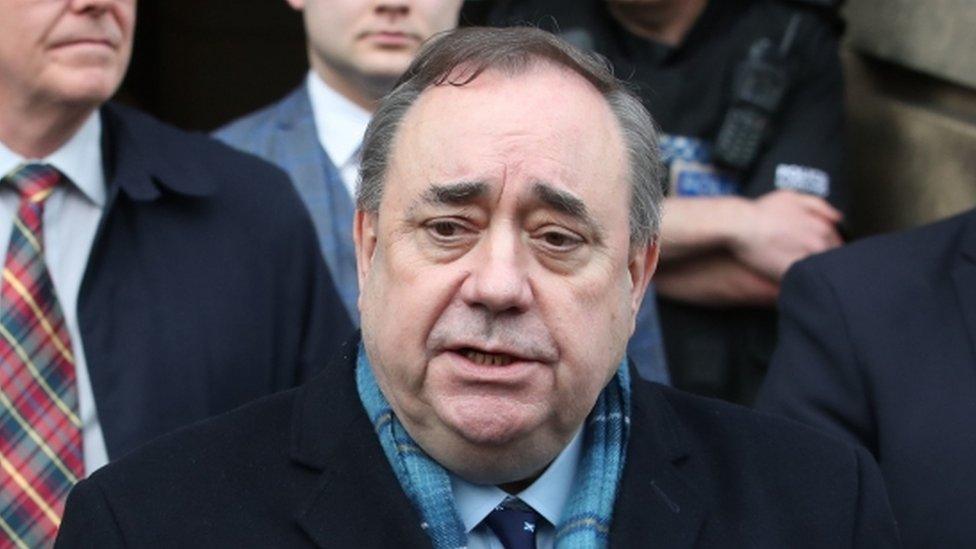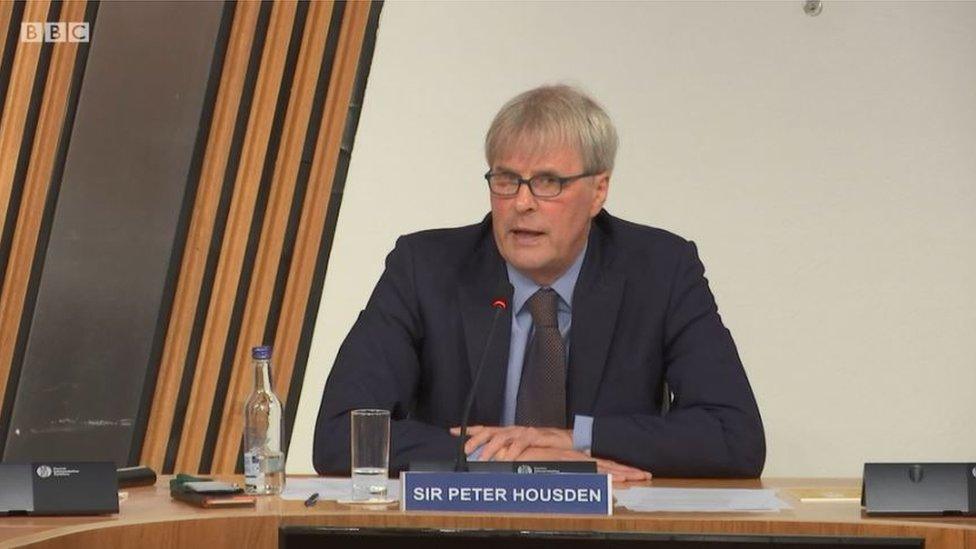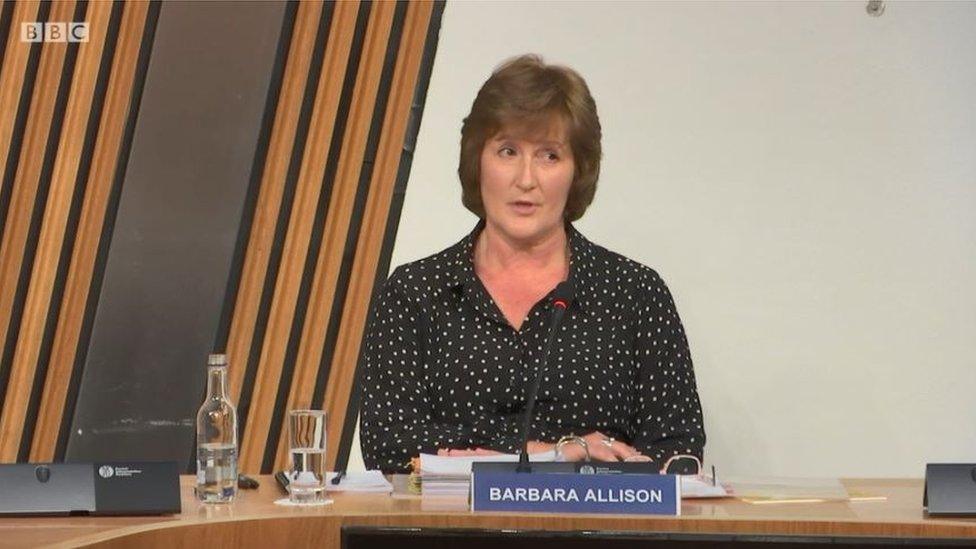Alex Salmond inquiry hears 'bullying' behaviour claim
- Published

Alex Salmond "could display bullying and intimidatory behaviour", the former first minister's top civil servant has told MSPs.
Sir Peter Housden said issues with the behaviour of minsters "punctuated" his time as permanent secretary.
However, he refused to confirm whether he had spoken to Nicola Sturgeon, then Mr Salmond's deputy, about this.
Sir Peter said he never witnessed any bullying, and that there had been "no suggestions of sexual misconduct".
He was permanent secretary between 2010 and 2015, and said no formal complaints were made against ministers during this period, with issues generally being dealt with "informally".
MSPs are holding an inquiry into the Scottish government's botched handling of harassment complaints against Mr Salmond.
The government had to pay the former first minister more than £500,000 in legal costs after accepting that its investigation was unlawful and "tainted with apparent bias".
Part of the inquiry is looking at how the government's complaints handling process was drawn up, with Sir Peter's successor Leslie Evans insisting it was not designed "to get" Mr Salmond.

Sir Peter Housden said he would try to find ways to "smooth things along"
Civil service trade unions previously said 30 staff had come to them with concerns - although not formal complaints - about bullying behaviour within the Scottish government, across a number of administrations.
Sir Peter said that while "no formal complaints came forward against any elected politician" while he was in office, he "knew the former first minister [Mr Salmond] could display bullying and intimidatory behaviour".
He said that "for much of the time the office ran really well, with great energy and motivation on both sides".
But he said life was "punctuated by these kind of behaviours that were a problem".
'Important journey'
Sir Peter said that when he was in post there was a "presumption" that issues would be handled informally where a formal complaint had not been made and there was no evidence of "egregious behaviour".
He said he would look to find ways to "ameliorate" issues and "smooth things along".
But while he said it would be "appropriate to speak with a senior member of the administration" about concerns, the "duty of confidentiality" prevented him from confirming or denying whether he had ever raised any with Ms Sturgeon.
Sir Peter said civil servants were "entitled to expect ministers to be able to control their behaviour".
He said: "I think what has happened particularly since 2017 has taken us on a very important journey into an environment where particularly women feel better supported in the everyday course of their work, and where necessary know that there are formal procedures that they have confidence in and have some kind of guarantee of integrity.
"At the end of the day it will be a decision for the individual employee to make - and it's a big one. It's a very significant thing to do, but the important thing is you're creating the conditions where people can take those decisions soundly."

Former HR director Barbara Allison said Mr Salmond "demanded high standards" of staff
Later in the session, former HR director Barbara Allison told MSPs that she was "aware of issues that had been raised through the trade unions", although not any specific complaints.
She said: "I was aware Mr Salmond could be demanding and difficult to work for, he demanded high standards and if he didn't get that he would express his displeasure.
"I would like to say for fairness that people also expressed that they enjoyed working for him, he was visionary, dynamic, it was a bit of a rollercoaster. There were lots of shades of grey.
"There were rumours of him being demanding and difficult but people had different experiences of working with him."
'Intense pressure'
During his criminal trial in March - which saw him acquitted of 13 charges of sexual assault - Mr Salmond said that to his "observation and experience" people were "keen to work in the private office".
He said staff were "subject to intense political pressure" but that people "knitted together out of that".
He added that it was "much more informal than any other part of government for the civil service".
The former first minister is expected to give evidence to the committee himself later in the year.
His lawyers have already written to the group offering to go to court to force the release of Scottish government documents.